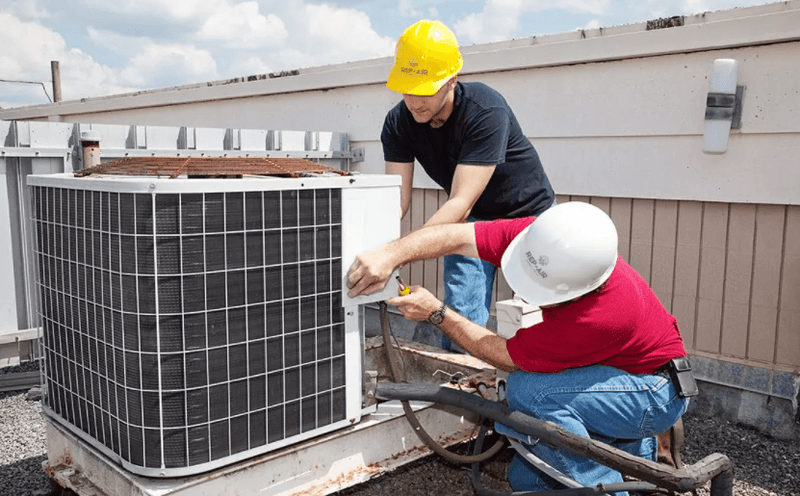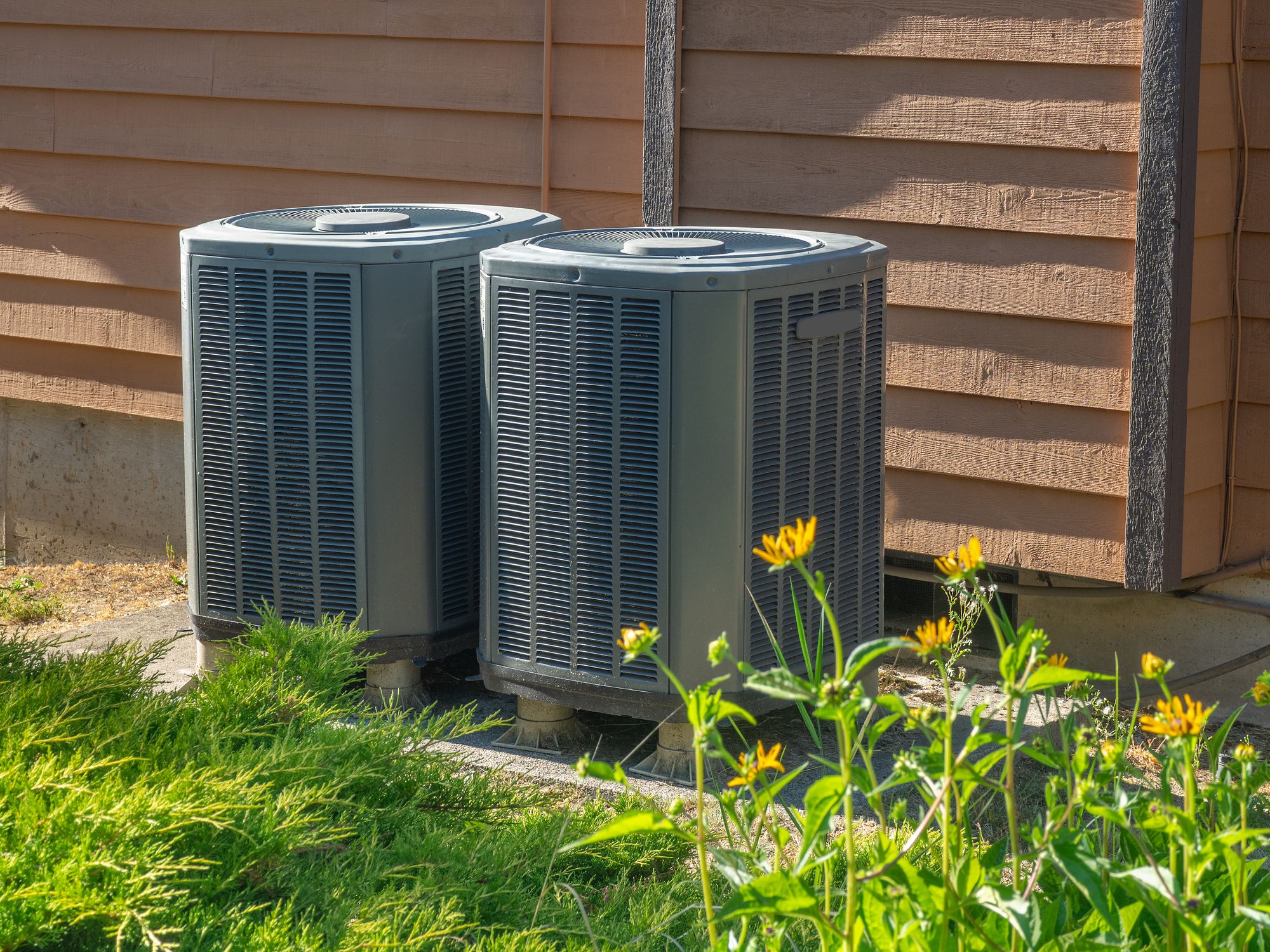Find out how HVAC experts recommend latest heating and cooling solutions
Exploring the Essential Elements of an Efficient Heating And Cooling System
An effective HVAC system is developed on numerous important components that function in consistency. Each component, from the thermostat to the ductwork, plays an essential duty in preserving convenience and power effectiveness. Comprehending these aspects is essential for optimizing performance and improving indoor air quality. As one analyzes these parts, the detailed connections between them reveal insights right into enhancing general system efficiency. What specific aspects contribute most to this effectiveness?
The Duty of the Thermostat in HVAC Effectiveness

Although usually neglected, the thermostat plays an essential function in the efficiency of HVAC systems. HVAC experts. This small tool works as the main control center, managing temperature level setups and making certain excellent comfort within an area. By properly sensing the ambient temperature, the thermostat interacts with the heating, air, and ventilation conditioning systems to maintain the preferred environment
An efficient thermostat lessens power usage by triggering the HVAC system only when needed, therefore stopping extreme heating or cooling. Modern programmable and clever thermostats improve this performance even more by allowing individuals to establish timetables and remotely adjust settings, adjusting to day-to-day regimens.
The positioning of the thermostat is important; improper area can lead to inaccurate temperature level analyses, resulting in ineffective operation. Generally, a well-functioning thermostat not only enhances comfort yet likewise contributes noticeably to power savings and the durability of the cooling and heating system.
Comprehending the Value of Air Filters
Air filters serve a crucial function in a/c systems by assuring that the air flowing within a room continues to be tidy and healthy and balanced. These filters trap dirt, irritants, and other pollutants, stopping them from being recirculated throughout the atmosphere. By recording these particles, air filters add to improved indoor air quality, which can significantly profit passengers' wellness, particularly those with allergic reactions or respiratory system conditions.
Additionally, maintaining tidy air filters boosts the effectiveness of HVAC systems. Clogged up filters can restrict air flow, causing the system to function more challenging to preserve wanted temperature levels, resulting in enhanced energy intake and greater utility expenses. Frequently changing or cleaning filters is an important maintenance action that can extend the life-span of cooling and heating equipment. Inevitably, recognizing the importance of air filters allows home owners and building supervisors to take proactive steps to guarantee a well-functioning, efficient heating and cooling system that promotes a comfortable and secure indoor setting.

The Capability of the Heater and Heatpump
Heating systems and heatpump are vital parts of a/c systems, liable for supplying warmth throughout cooler months. Furnaces run by home heating air through combustion or electrical resistance, after that distributing it throughout the home through air ducts. They commonly supply rapid home heating and can be sustained by gas, electrical energy, or oil, depending upon the system type.
Conversely, heatpump transfer heat instead than produce it. They draw out warmth from the outside air or ground, also in low temperature levels, and move it inside. HVAC experts. This twin performance allows heatpump to additionally offer cooling in warmer months, making them flexible alternatives for year-round climate control
Both systems require appropriate maintenance to assure efficiency and durability. While furnaces succeed in severe cold, heatpump can be useful in moderate climates. Understanding their distinctive functionalities aids home owners in picking the most appropriate option for their home heating requires.
Discovering the Air Conditioning Unit
The cooling system is a crucial part of a/c systems, offered in different kinds to suit various needs. Recognizing the effectiveness rankings of these systems is essential for making informed selections about energy usage and price. This area will certainly discover the diverse types of a/c and clear up just how efficiency rankings impact performance.
Kinds Of Air Conditioners
While various factors influence the option of a/c systems, understanding the different types offered is vital for property owners and structure supervisors alike. Central air conditioners are developed to cool down whole homes or buildings, using a network of ducts for airflow. Home window devices offer an even more local option, perfect for solitary areas or little rooms. Mobile a/c supply versatility, permitting users to relocate the unit as needed. Ductless mini-split systems are another option, incorporating the performance of main systems with the convenience of zoning, as they require no ductwork. Finally, geothermal systems harness the planet's temperature level for energy-efficient air conditioning. Each kind comes with distinctive advantages, making notified options important for efficient environment control.

Performance Scores Explained
Understanding effectiveness scores is important for picking the appropriate a/c system, as these metrics give insight into the system's efficiency and power consumption. The most common score for ac system is the Seasonal Power Performance Ratio (SEER), which measures the cooling outcome during a regular air conditioning season separated by the total electric power input. A higher SEER shows much better efficiency. Additionally, the Energy Efficiency Ratio (EER) is used for determining performance under particular conditions. Another essential metric is the Power Star qualification, which indicates that a system satisfies stringent power efficiency guidelines. By reviewing these scores, consumers can make informed options that not just maximize convenience however also decrease energy costs and environmental influence.
The Significance of Ductwork and Air flow
Efficient ductwork style and air flow management play crucial duties in the total effectiveness and efficiency of cooling and heating systems. Proper ductwork assurances that conditioned air is dispersed evenly throughout a space, lessening temperature level changes and improving convenience. Well-designed ducts minimize resistance to air flow, lowering the workload on a/c equipment and ultimately decreasing energy consumption.
Airflow monitoring entails strategically positioning vents and registers to enhance the flow of air. This stops usual concerns such as cool or hot areas, which can occur when airflow is obstructed or inadequately well balanced. In addition, the appropriate air duct products and insulation can additionally enhance performance by decreasing heat loss or gain during air transit.
A reliable ductwork system not only contributes to energy financial savings however can also lengthen the life expectancy of cooling and heating equipment by reducing unnecessary strain (HVAC experts). As a result, understanding the importance of ductwork and air check here movement is crucial for achieving peak HVAC system efficiency
Normal Upkeep Practices to Boost Performance
Regular maintenance practices are crucial for making certain peak performance of heating and cooling systems. These practices include routine inspections, cleansing, and essential fixings to keep the system running effectively. Routinely changing air filters is essential, as stopped up filters can block air movement and lower performance. Additionally, technicians must examine and tidy evaporator and condenser coils to avoid overheating and energy wastefulness.
Annual professional examinations are likewise suggested, as trained technicians can recognize potential problems prior to they rise. Lubricating relocating parts decreases damage, adding to a much longer life expectancy for the system. Making certain that the thermostat works correctly help in keeping perfect temperature control.
Frequently Asked Questions
Exactly how Often Should I Replace My Thermostat?
Thermostats must normally be replaced every 5 to ten years, depending upon use and technology improvements. Normal checks are advisable to guarantee peak efficiency, particularly if experiencing inconsistent temperature control or enhanced energy expenses.
What Size Air Filter Is Ideal for My HVAC System?
The most effective size air filter for a heating and cooling system varies by device style. Normally, it's crucial to speak with the owner's manual or check the existing filter dimensions to guarantee peak efficiency and air quality.
Can I Mount a Heat Pump Myself?
Installing a heatpump individually is feasible for knowledgeable individuals, however it needs knowledge of neighborhood codes and electric systems. Working with a professional is recommended to ensure proper setup and perfect system performance.
Just how Do I Know if My Ductwork Is Reliable?
To determine ductwork performance, one should inspect for leakages, measure airflow at vents, examine insulation high quality, and evaluate temperature level distinctions in between supply and return ducts. Professional evaluations can offer detailed understandings into total efficiency.
What Are Indicators My A/c Needs Immediate Upkeep?
Indications that an a/c system needs instant upkeep include uncommon sounds, inconsistent temperature levels, raised energy bills, undesirable smells, and regular cycling. Addressing these concerns without delay can protect against more damage and guarantee top system efficiency.
Air filters offer an essential function in Heating and cooling systems by guaranteeing that the air distributing within a space continues to be healthy and balanced and clean. Additionally, maintaining clean air filters enhances the performance of Heating and cooling systems. Ductless mini-split systems are an additional alternative, combining the efficiency of central systems with the ease of zoning, as they call for no ductwork. Comprehending efficiency scores is crucial for picking the right air conditioning unit, as these metrics provide understanding into the system's efficiency and power intake. The best size air filter for an A/c system varies by device design.